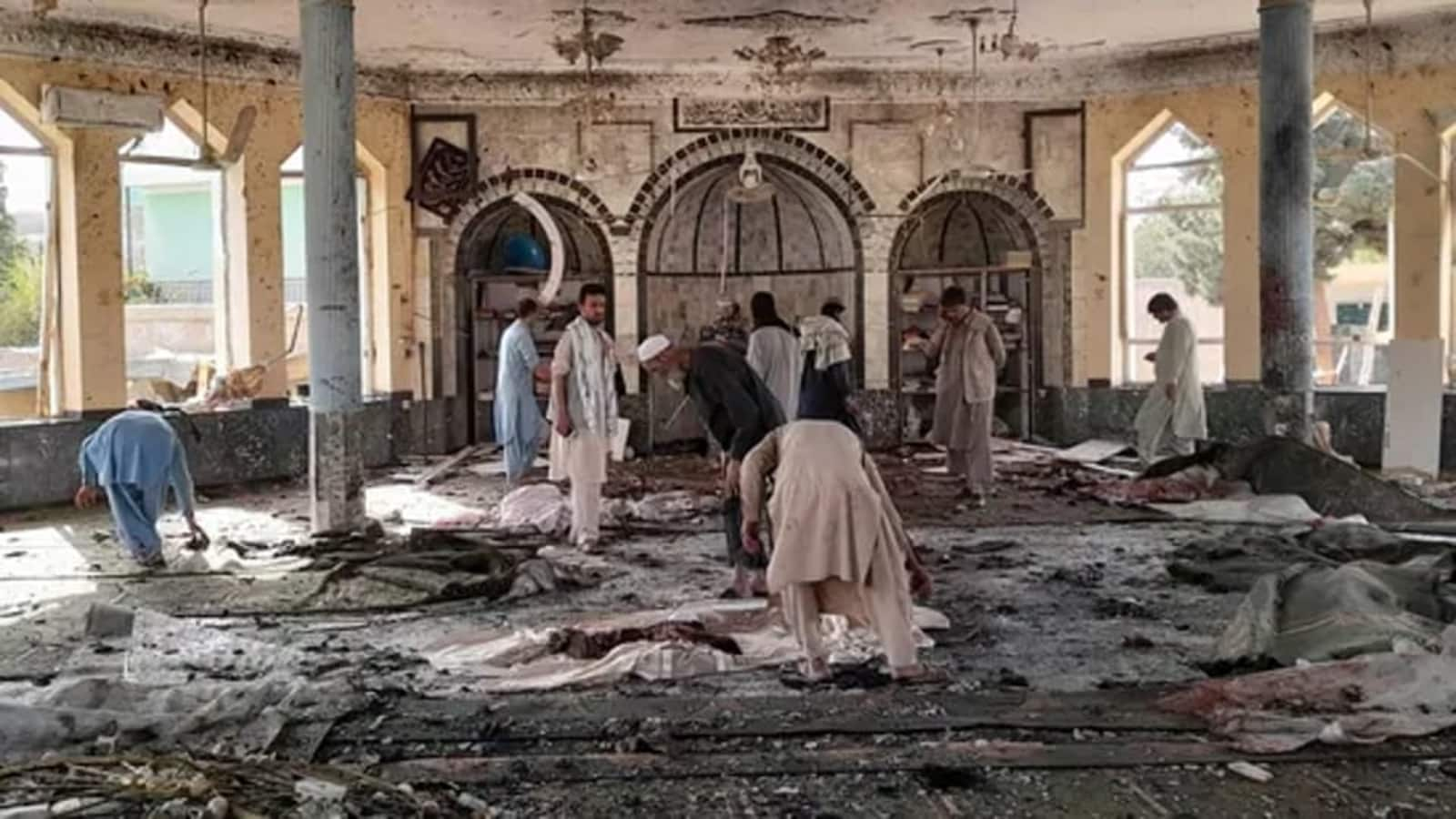
KANDAHAR, Afghanistan, Oct 15, 2021 (BSS/AFP) - A suicide bomber attacked
a Shiite mosque in the southern Afghan city of Kandahar during Friday
prayers, Taliban officials said, killing at least 33 people and injuring 74
others.
The assault came just a week after a suicide attack on Shiite worshippers
at a mosque in the northern city of Kunduz, which was claimed by the Islamic
State group.
There has not yet been any claim of responsibility for the assault in
Kandahar, the spiritual heartland of the Taliban.
"Our initial information shows it was a suicide bomber who blew up himself
up inside the mosque. We have launched an investigation to find out more," a
local Taliban official told AFP on condition of anonymity.
A doctor at the city's central Mirwais hospital told AFP: "Thirty-three
bodies and 74 wounded people have been brought to our hospital so far."
Other medical sources and a provincial official confirmed a toll of more
than 30, and at least 15 ambulances were rushing to and from the scene.
"We are overwhelmed," the doctor told AFP. "There are too many dead bodies
and wounded people brought to our hospital. We are expecting more to come. We
are in urgent need of blood. We have asked all the local media in Kandahar to
ask people to come and donate blood."
An eyewitness told AFP he heard three explosions, one at the main door of
the mosque, another at a southern area, and a third where worshippers wash
before their prayers.
Another witness also said that three blasts rocked the mosque in the
centre of the town during Friday prayers, the busiest congregation of the
week.
"We are saddened to learn that an explosion took place in a mosque of the
Shiite brotherhood in the first district of Kandahar city in which a number
of our compatriots were martyred and wounded," tweeted interior ministry
spokesman Qari Sayed Khosti, of the Taliban movement that rules Afghanistan.
- Many worshippers -
Graphic images posted to social media, which could not be immediately
verified, showed bodies lying on the floor of the Fatemieh mosque.
"Firing started after we ended the prayers. Then two or three explosions
took place," said local resident Ahmadullah.
"Many people, martyred and wounded, were laying there. I don't know what
happened later."
Last Friday, an Islamic State-Khorasan (IS-K) suicide bomber targeted a
Shiite mosque in Kunduz, killing scores of people.
The group, a bitter rival of fellow Sunni Islamist movement the Taliban,
claimed responsibility for the attacks against Shiite worshippers, whom it
regards as heretics.
UK-based conflict analysis firm ExTrac said that if claimed by IS-K,
Friday's attack would by the first by the group in Kandahar, and the fourth
mass casualty massacre since the Taliban took Kabul.
ExTrac researcher Abdul Sayed told AFP the attack was "challenging the
Taliban claims of holding control on the country. If the Taliban can't
protect Kandahar from an IS-K attack, how could it protect the rest of the
country?"
The Taliban, which seized control of Afghanistan in mid-August after
overthrowing the US-backed government, has its own history of persecuting
Shiites.
But the new Taliban-led government has vowed to stabilise the country, and
in the wake of the Kunduz attack promised to protect the Shiite minority now
living under its rule.
Shiites are estimated to make up roughly 10 percent of the Afghan
population. Many of them are Hazara, an ethnic group that has been persecuted
in Afghanistan for decades.
In October 2017, an IS suicide attacker struck a Shiite mosque in the west
of Kabul, killing 56 people and wounding 55.